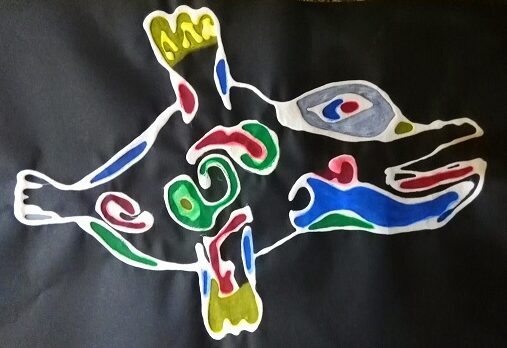Have you seen the meme on TikTok in which unsuspecting strangers on the street are treated like NPCs?
NPCs—Non-Player Characters—are computer-led characters in video games that serve to assist a player (a PC, or player character; a real life player). One way is by giving him hints about the next step in his quest. NPCs also provide a game function such as to help the player buy something. Or, they simply advance the game’s storyline.
What do our kids know about NPCs? How do we redirect their thinking toward who God made us to be and how to treat others?
The main point is that the NPC typically acts and reacts based on the programming behind it. Since, therefore, NPCs aren’t directed by a human will (a real life player), they are considered to be unthinking. That’s why we are now seeing young adults treating real human beings as unthinking NPCs in videos. As pawns in a larger game of which they are supposedly unaware. The meme translates the concept and motivations of NPCs to humans, typically resulting in unkind or dehumanizing interactions.
How can we explore what our kids know about NPCs and redirect their thinking towards who God says we are and how to treat others?
A – All Are Created in God’s Image
Your child may mention an NPC in either a game or meme context. If not, ask them about the term. Then dive in with the little bit you now know.
“I understand that when you play a character in a game, sometimes NPCs show up that help you. But they can’t do a lot, because they are programmed to do limited things. Have you ever heard of people making fun of real people for supposedly acting like NPCs in real life—maybe on TikTok or in a game chat?
“Why do you suppose it’s so easy to make fun of real people like that?”
He’ll likely describe how it’s just fun, and funny, and who knows what else.
“Well, I hope you remember that everyone is a player character (PC) in real life. And an equal PC to you. We’re made in God’s image—created to be like him. And, of course, since God is all about love, he put us here to be that way…to be kind. To be kind to others, not to make fun of them. Did you know that God put you in this particular high tech time and place for a purpose that fits His plan? Just like he put everyone else here?”
Now, after your child pats himself on the back for being so important as to have been born in the age of TikTok, remind him that it comes with an obligation—in part, to treat himself and the other with dignity and charity.
B – Believers Lead with Love
Continuing the conversation, you ask, “Have you ever heard the quote, ‘God don’t make no junk?’ He knows everything about us. And he created us to be a (air quotes) “PC” who follows his lead. And that means leading with love by valuing other people.
“Yet society finds all kinds of way to assign greater value to one person over another. But it just isn’t true in God’s eyes. We are all sinners, imperfect. We all need his grace. That leaves no room to mock or insult a friend or stranger as an NPC. It is dehumanizing.
”We need to be sure we’re acting and reacting like the believers we are, instead of laughing at someone else’s expense.”
C – Created with Free Will
NPCs are given simple game functions or dialogue, but they don’t have programmed ‘freedom’ besides that. So remind your child of how his own free will is a powerful tool to be rightly employed.
“Although an NPC doesn’t have freedom to say and do whatever he wants, you, my dear, were granted free will by God. Do you know what that is?”
He may use this opportunity to tell you he suspects it is something he would like to use for all manner of generally unapproved activities.
“Free will means we get to make choices. But still, those choices have to make sense. They have to fit into the gravity of this earth and the physical body he has given us, for example. You may want to use your free will to walk straight up over your own head. But gravity keeps your feet on the ground. You may want to be a unicorn, but God has made you as a male or a female.
“You may also want to do whatever you want tonight, but you were given parents (or a grandparent, etc.) who care about you, and so a family structure was created to help you use your free will within guidelines. Just like parents have free will, but we are to obey God’s guidelines when we use it, too.”
Now that you’ve explained free will in the vernacular, read a little deeper so you’ll be prepared the next time it comes up (and it will).
Now I Know My ABCs of NPCs
While NPCs are generally pre-programmed with only basic, prescribed functions, they do have a game purpose. And every person has a God-given purpose in this life. Encourage your kids not to blithely dehumanize others.
And although NPCs don’t have game play freedom like your child does as the PC, they are recognized for their role. And you are reminding your child to recognize and respect other people for who they are as well.
NPCs appear only in games, not in our homes, our schools, or our communities. It is up to us to offer a moral foundation to our kids to help them understand that. Technology won’t offer it to them.[1]
___
[1] Neil Postman, “Technopoly: The Surrender of Culture to Technology” (Vintage Books, 1993), xii.

